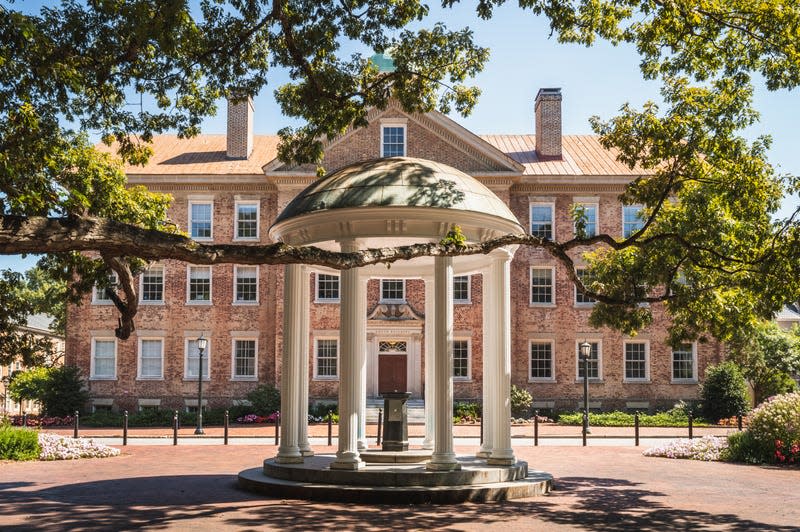UNC-Chapel Hill Back Again with Another Legal Battle. Now, They're Facing the Supreme Court

No, we’re not discussing Nikole Hannah-Jones and The 1619 Project. The latest dispute for University of North Carolina-Chapel Hill is about their affirmative action practices. According to The Washington Post, a plaintiff has asked the Supreme Court to decide on whether the school’s application measures are constitutional or not.
From the school’s perspective, upholding affirmative action means allowing the “limited” use of race to help diversify campuses. The university’s chancellor, Kevin M. Guskiewicz described it as “holistic,” per The Post. On the other hand, the plaintiff from Students for Fair Admissions claims the school gives special treatment to Black and Hispanic applicants, ignoring “race-neutral” options to diversify the school. They allege affirmative action is a violation of civil rights and brought their allegations against Harvard University as well.
Read more
It seems the plaintiff may be absent from the reason affirmative action exists in the first place: to give historically disadvantaged students a fair chance at their school of choice.
Read the reaction from a fellow UNC-Chapel Hill student from The Post:
Julia S. Clark, a senior majoring in political science and African, African American and diaspora studies, said race should not be ignored in admissions when it affects so many other aspects of educational opportunity. The 21-year-old from Falls Church, Va., identifies as Afro-Latina and is president of the Black Student Movement at UNC-Chapel Hill.
“We need to have race be a factor in our admissions system because race is a factor in people’s everyday lives,” Clark said one late September afternoon in the student union. “Race is a factor in my life all the time. There is never a time when race is not a factor for me.”
Another student, Jacob James (white), said he thinks affirmative action is “egregious” at public universities. “Effectively what it’s saying is, ‘You’re not good enough to get in on your own merit, so we have to help you,’” he told The Post.
Well…isn’t that the point? School admissions staff may look over an applicant simply because of their race, assuming they don’t meet the qualifications. So yes, those students need help. According to a study by the University of Washington, there was a 23 percent decrease of students of color at public colleges in an affirmative-action ban state. A more recent report by Education Trust found only 9 percent of Black students were enrolling across 101 public colleges at rates proportionate to their population.
Not to mention, while Harvard, Yale and Princeton are being investigated for their admission practices, their student populations are still majority white. UNC-Chapel Hill, specifically, has a 9 percent Black undergraduate population.
Last year, US District Judge Loretta C. Biggs ruled the school was not in violation of civil rights laws. However, Court justices have agreed to review the case along with Harvard’s.

